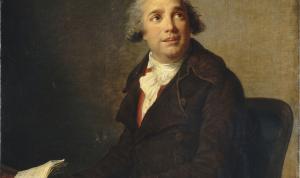How the heck do you write a piece of classical music? Part 2.

Last week I gave you what I wrote 10 years ago about composing. I'm going to use that as the starting point for my writing today ...
I suggested there were two elements to composition: inspiration and perspiration. Of course, that's not an original thought, but I still think it's a good one. If I have no idea how a clarinet works, what its range is, etc then it's going to be sheer guesswork for me to write music for the clarinet. Similarly, if I don't write my ideas down in a way that the clarinet player understands then my music won't be communicated well, if at all: we have to share a common language, and, for the most part, that is the system developed over many centuries of staves, clefs, keys etc. That's all stuff that I have to get to know: I study it, I absorb it, it doesn't matter how, but I've got to know it. Of course it's not something that you do once and never do again, because there is always more to learn, and new things come up too (e.g. a clarinetist develops a new technique which I don't know about). This is pretty straightforward really - information to be learned.
But inspiration is quite different. I can't learn inspiration, but it does come out of what I have learned about the clarinet (and everything else that I know about music), in other words inspiration does not occur in a vacuum. Could I write inspired Indian music? No, because I don't understand much about the Indian classical music system of ragas and talas. You can't be inspired in a medium that you don't understand. An inspirational blues guitartist won't be an inspirational jazz guitarist if they've never played any jazz. But just knowing that medium, that art-form, that type of music doesn't mean you will be able write something inspired within it. Ok, so I've still not really said what inspiration is. And that's because I don't think there is a definition that really works. To be clear, I'm not talking about saying something like "the inspiration for this piece of music came when I met my boyfriend", that's different, that's about what set the creative process working, it's nothing about what that creative process actually is nor why it will (sometimes) result in 'inspired' music. It may point to the fact that powerful experiences can light the inspiration fuse - but they don't always do that, nor does the 'inspiration fuse' require a powerful experience of necessity. I think there are two partial answers I can give. Firstly, music that is considered inspired is judged to be so by others. I, the composer, could never say that my music is inspired. This is where an historical perspective is useful: knowing that Mozart's music is considered more inspired than music by his contemporary Giovanni Paisiello (the accompanying picture is of him, by the way), and that late Mozart is considered more inspired than early Mozart. For example. But note that at different times in history we look back (and around) with different ears: note how the music of Mahler was considered of little value for many years after his death, but now is thought to be some of the most inspired music of all time. It is the listener, and the performer, who decides if something is inspired. Secondly, the creative process is the result of everything that I am as a person. Yes, that contains my knowledge of the clarinet and the like, but it's also about the whole of my life experience ... my highs and my lows, my relationships, my mental state and so on, and so forth. I create music out of all of that, and my suspicion is that it is the composer who learns to really tap into the warp and weft of their life experiences that stands a chance of writing inspired music.
Two asides, although they're not really asides. There are two other groups of people who contribute to whether music is considered inspired: publishing executive and the DJ. The publishing executive because if music is not published and therefore not played or heard then it won't be considered inspired (this has been, and still is in large part, the fate of a lot of music written down the centuries by women). The DJ for the same reason. Remember how famous Gorecki's 3rd Symphony because in the UK in the 1990s? That was all started by Classic FM, who just played it constantly. By the way, I'm not suggesting that just because something is famous that it is inspired, but I am saying that if something becomes famous it has the chance of being considered inspired.
One final thought for today. Do I want to write 'inspired' music? There is something wonderful about 'normality'. About being Paisiello rather than Mozart. Being Mozart sounds rather dangerous, perhaps because it would involve that tapping into my deepest being, and that might be uncomfortable. Certainly, not that many people achieve the Mozartian leval of inspiration (at least in the listener and the performers' opinion) but not always do all composers want to achieve that.
Next time I'll get onto what I called the 'common sense' part of composing. I'd say that that sounds like a bit of dodgy terminology!



